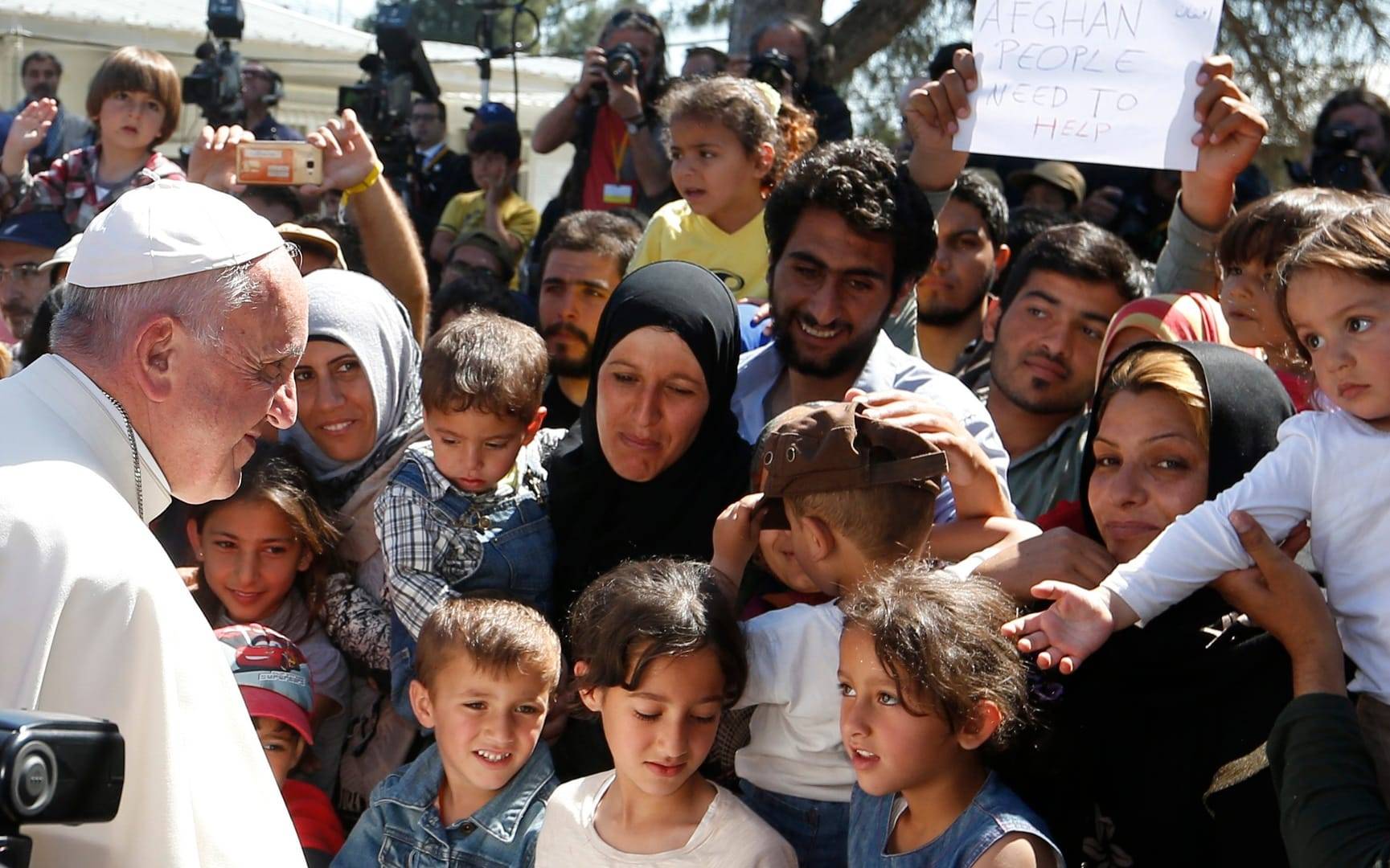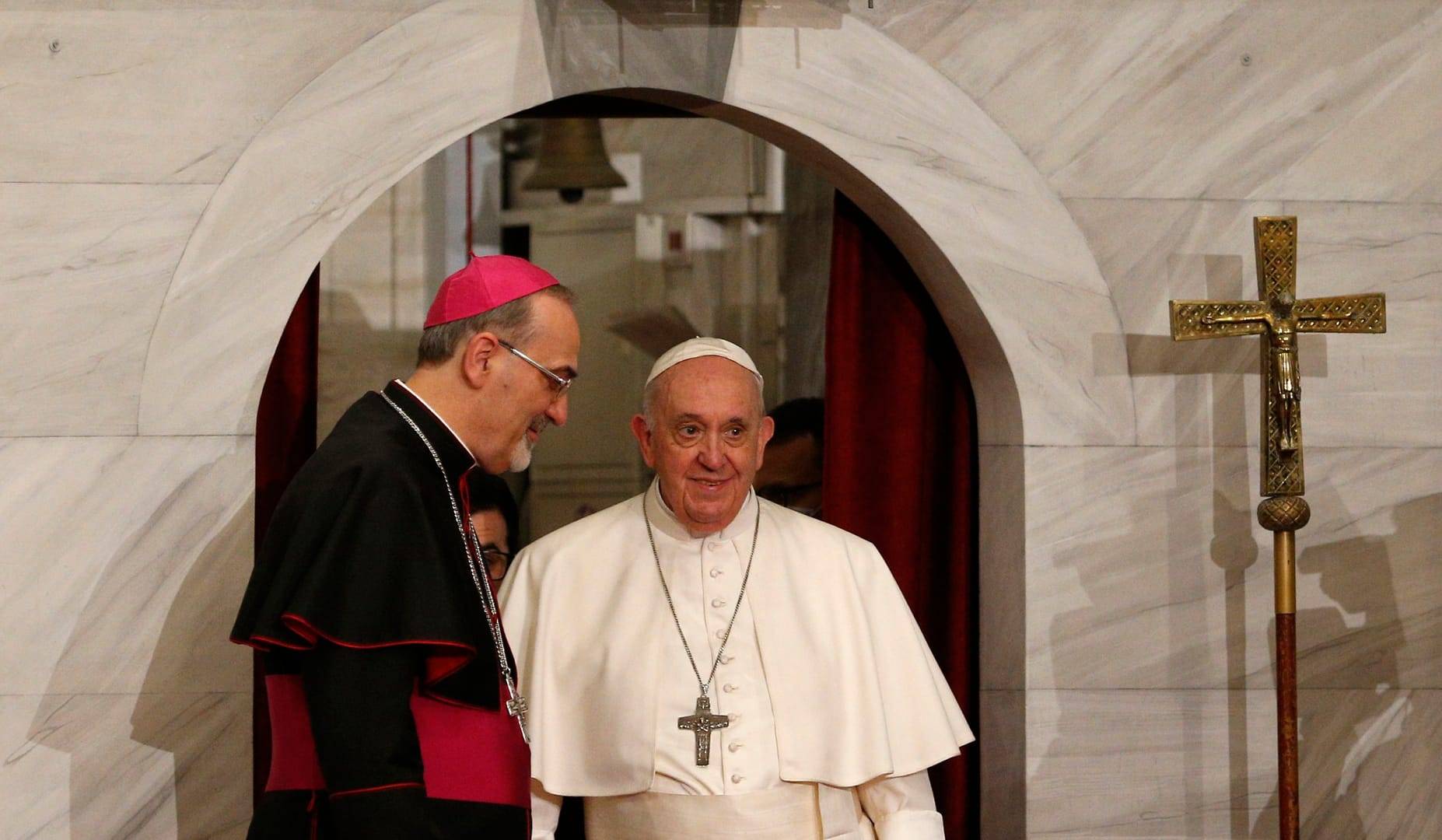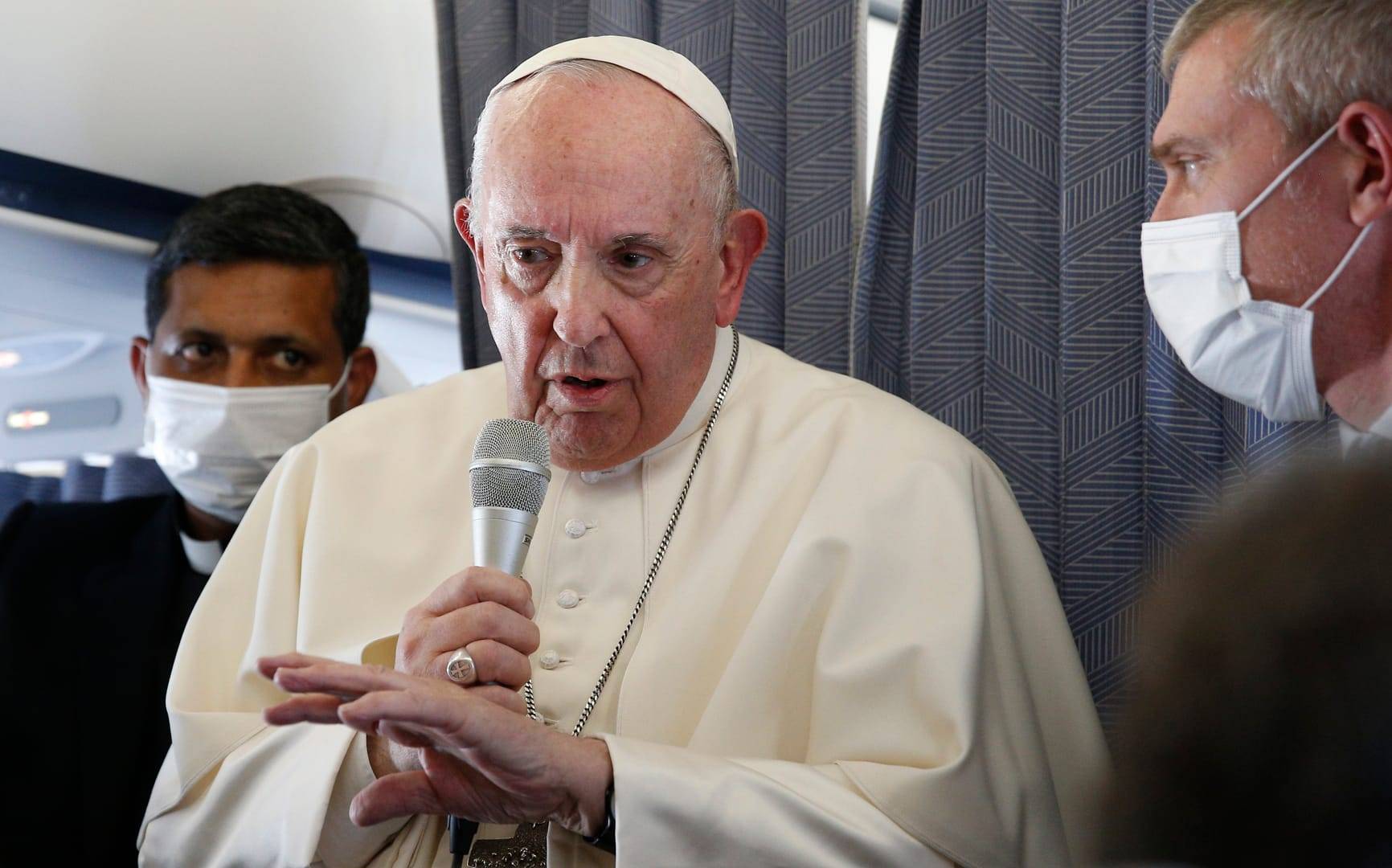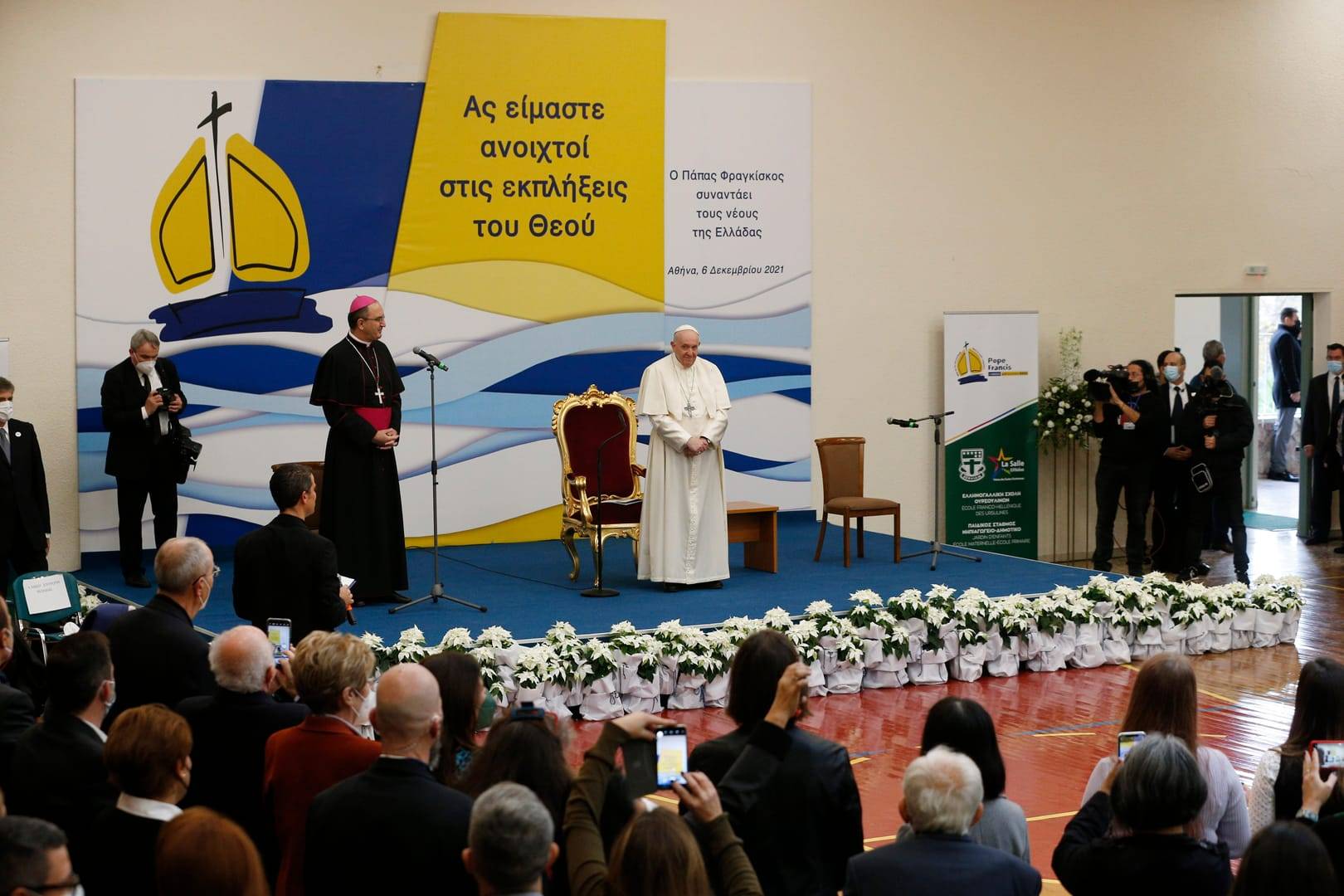ATHENS – After spending Sunday morning on the Greek island of Lesbos, Pope Francis returned to Athens and celebrated Mass for Greece’s Catholic community, telling faithful not to give up when life seems hopeless but to trust in the strength of God.
“In our lives as individuals or nations, there will always be times when we feel that we are in the midst of a desert. Yet it is precisely there that the Lord makes his presence felt,” the pope said during his Dec. 5 homily.
God, he said, is “often welcomed not by the self-satisfied, but by those who feel helpless or inadequate. And he comes with words of closeness, compassion and tenderness.”
Pope Francis celebrated Mass in the Megaron Concert Hall in Athens on his last full day in the city as part of a broader Dec. 2-6 visit to Cyprus and Greece, which has struggled in recent years due to an economic crisis compounded by the massive influx of migrants on its shores.
Earlier Sunday morning, the pope traveled to the Greek island of Lesbos, where he met with migrants and refugees, taking time to shake their hands, bless their children, and visit the containers they live in.
He will return to Rome Monday, closing a 5-day trip that focused largely on the issue of migration and ecumenical relations with the Orthodox.
In his homily, Pope Francis focused on the day’s Gospel reading from Luke, which says that “the word of God came to Zechariah in the wilderness.”
“We might have expected God’s word to be spoken to one of the distinguished personages just mentioned,” he said. “Instead, a subtle irony emerges between the lines of the Gospel: from the upper echelons of the powerful, suddenly we shift to the desert, to an unknown, solitary man.”
“God surprises us. His ways surprise us, for they differ from our human expectations; they do not reflect the power and grandeur that we associate with him,” he said, adding that “the Lord likes best what is small and lowly.”
From this passage, it is understood that being famous, powerful, or well-educated are not signs of God’s favor, “for those things could actually lead to pride and to rejecting him.”
“Instead, we need to be interiorly poor, even as the desert is poor,” he said, noting that John the Baptist in his preaching did not go to a place where he would be easily seen or have big crowds, but instead chose the desert, and it was “precisely there, in an arid, empty waste, stretching as far as the eye can see, the glory of the Lord was revealed.”
“Then as now, God turns his gaze to wherever sadness and loneliness abound,” he said, noting that it is often in times of trial, rather than success, that God is able to reach hearts.
By choosing to preach in the desert, John the Baptist, Francis said, “assures us that the Lord comes to set us free and to revive us in situations that seem irredeemable, hopeless, with no way out. There is no place that God will not visit.”
Pope Francis also spoke of the importance of conversion, particularly during the liturgical season of Advent, when the Church is preparing to celebrate the birth of Jesus.
Just like the image of a desert, the concept of conversion can often be uncomfortable, and “can depress us; it can seem hard to reconcile with the Gospel of joy,” he said, adding, “that is only the case if we think of conversion simply in terms of our own striving for moral perfection, as if that were something we could achieve as the result of our own effort.”
“Therein lies the problem: we think everything is up to us. And this leads to spiritual sadness and frustration,” he said.
He referred to Greek word for conversion in the Gospel, metanoein, which translates literally as to “think beyond.”
Conversion, then, means to “go beyond our usual ways of thinking, beyond our habitual worldview. All those ways of thinking that reduce everything to ourselves, to our belief in our own self-sufficiency,” he said.
To truly convert, it is necessary to move beyond the self-centered attitudes “marked by rigidity and paralyzing fear,” and which view the deserts of life as “places of death rather than places of God’s presence.”
For Francis, to be converted, then, means “not listening to the things that stifle hope, to those who keep telling us that nothing ever changes in life.”
“It means refusing to believe that we are destined to sink into the mire of mediocrity. It means not surrendering to our inner fears, which surface especially at times of trial in order to discourage us and tell us that we will not make it, that everything has gone wrong and that becoming saints is not for us,” he said.
That is not the case, he said, “because God is always present,” and it is necessary to trust him, “for he is our beyond, our strength.”
Pope Francis closed his homily asking for the grace to believe that “with God things really do change, that he will banish our fears, heal our wounds, turn our arid places into springs of water.”
“Let us ask for the grace of hope, since hope revives our faith and rekindles our charity. It is for this hope that the deserts of today’s world are thirsting,” he said.
Follow Elise Ann Allen on Twitter: @eliseannallen











